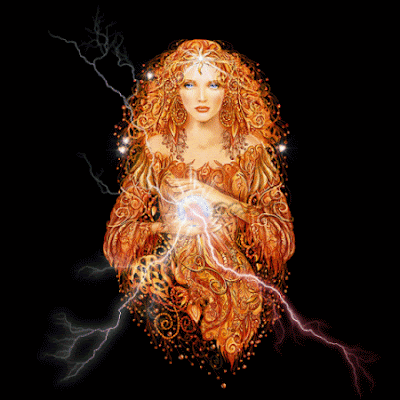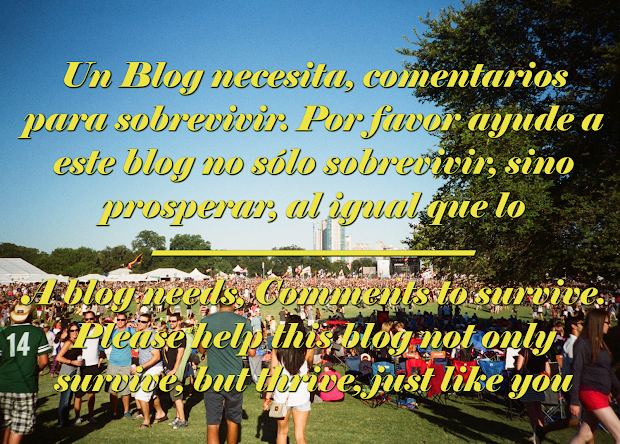Hi dear friends and followers. Today I would like to share a little more with you about the topic of Narcissistic Personality Disorder.
Note: I personally, but this is only my opinion, that a good many abusive relationships may be the result of one of the individuals in a relationship being a good candidates for Narcissistic behaviour. But I would be terribly wrong in saying that most stem from this disorder, because there is also the factor of drugs, alcohol and mental health issues also involved. Read on, and thank you for visiting my blog
What is Narcissistic Personality Disorder?
Narcissistic personality disorder or NPD is a psychiatric condition in which people are exceedingly preoccupied with themselves and have an extremely inflated sense of self-worth. Narcissists are difficult for most people to understand, and even more so for empaths. In the past narcissistic personality disorder was referred to as megalomania.
Characteristics of a NarcissistThe DSM-IV describes a narcissist as a person who fulfills at least five of the nine possible characteristics of NPD, as well as the general characteristics of a personality disorder. The nine characteristics of NPD are:
An extremely inflated sense of self-importance
Repeated fantasies of extreme wealth, perfect love, or other ideals.
Meet the Narcissistic Person
A need for constant admiration
An unreasonable sense of entitlement
A tendency to take advantage of others
Lacking in empathy
A belief that others are envious of him or her and/or is commonly envious of others
A tendency to behave in an arrogant or haughty manner
Differentiating Narcissism from High Self-Esteem
People who are narcissistic also share many traits in common with people who have high self-esteem and a lot of confidence. The differentiation between them is that narcissists actually have low self-esteem and cannot handle criticism. Much of their behavior is a defensive attempt to prop up their own sense of self-worth.
Certain narcissistic tendencies are perfectly normal in children. However, the western world is turning out more and more narcissistic children and science is not sure why. Some factors that are believed to contribute are many activities in life that praise individual achievements and a constant, over-effusive stream of praise that is not tempered by criticism.
Behind the Scenes of NPD
Psychologists believe that NPD is the manifestation of an individual who believes that they are too deeply flawed to be liked or valued. Instead of expressing this, individuals with NPD attempt to prove to themselves and everyone else that they are a valuable individual. Their attempts to make everyone see them as they wish to be seen are more important than anything else, including other people’s feelings.
People with NPD almost never voluntarily seek therapy. Many narcissists express disdain at the idea of therapy, consciously or unconsciously fearing that it would expose something that did not fit with their self-image. The incidence of NPD among the general U.S. population is believed to be around 1 percent.
Note: I am also including here Narcisstic Personality and astrology portion for those who have an interest in Applied Astrology
Can you look at an astrology birth chart and tell if a person is a narcissist or has narcissistic personality disorder?
Just a reminder that I’m not a professional astrologer, but I very much enjoy it as a hobby and I’ve been studying it for about 11 years.
The short answer is no. At least, not in my experience. However, I have found some rather interesting conjunctions in the natal charts of people I personally know who have either been professionally diagnosed as having Narcissistic Personality Disorder (NPD) or exhibit the 9 characteristics of NPD.
The chart above belongs to a man I’ve known for 25 years, before I understood that I was an empath. Early in our interactions, we had many discussions of psychology and human dynamics, including an long list of childhood memories and an early diagnosis of NPD that remained unchanged over long years of therapy in adulthood. This man was absolutely charming and charismatic, as you might guess from his Pluto-Venus conjunction 8 Virgo 52 and 8 Virgo 35. This conjunction also meant that, in looking at synastry, or his relationships, I noted that the people of his generation (having the same Pluto) found him extremely intense and…shiny. There are other things in his chart that support the features of NPD but the standout–to me–is his Venus-Pluto pairing. This is beauty/love/romance (Venus) paired with nuclear intensity (Pluto) at the same degree.
Does this mean that anyone with a Venus-Pluto pairing has Narcissistic Personality Disorder? I have no idea. I’m sure Venus-Pluto can manifest in other ways. Most conjunctions have different flavors to them, so why not?
Does this mean that all charming and charismatic people have narcissistic personality disorder? Nope. But many of them are very, very, VERY exciting to be around–I’ve known a few who wanted to have their own cult following…no kidding. Am I saying that all narcissists are charming and charismatic? Oh, most definitely not. From my observations of the narcissists in my life, some are definitely not bigger-than-life personalities except in their own minds.
But I do find the natal charts of narcissists to be very telling.
Here’s another chart, this time of confirmed narcissist I’ve known since I was a teen:
This one manifested in a more behind-the-scenes personality than the previous chart’s owner. While Pluto and Venus are not in a tight orb, the Ascendant in the middle of this trio made for an explosive personality, with the explosions just below the surface. The twelfth house moon in Leo was also an eye-opener but I’ll stick to the similarities in these charts.
In every natal chart I have of narcissists I’ve “experienced” over the last 30 years, there tends to be a conjunction or square of Venus and Pluto OR Venus and Uranus on fewer occasions. I’m not sure if Venus-Pluto oppositions would create the same results: I simply don’t have any charts with that aspect.
I’ve seen these same Venus-Pluto pairings in synastry where the relationship is very volatile (Venus-Pluto conduction or Venus-Pluto square) or even where one of the couple is a stalker or obsessed (usually Pluto opposite Venus).Consider that same energy not between two people but within one person.
For a free natal chart, I recommend you visit astro.com and follow the instructions to create a chart under Extended Chart Selection. (Sorry–I can’t do this for you, but it’s easy for you to do yourself.)If you’d like to read more about empaths and narcissists, see my full list of articles at the Empaths and Energetic Connections Page.
What do YOU think? If you have a natal chart of someone diagnosed with Narcissistic Personality Disorder, what unique aspects do you see? No names or birthrates of the individual, please, but please comment below.
Is Narcissistic Personality Disorder Written in the Stars? (Applied Astrology)
Just a reminder that I’m not a professional astrologer, but I very much enjoy it as a hobby and I’ve been studying it for about 11 years.
The short answer is no. At least, not in my experience. However, I have found some rather interesting conjunctions in the natal charts of people I personally know who have either been professionally diagnosed as having Narcissistic Personality Disorder (NPD) or exhibit the 9 characteristics of NPD.
Does this mean that anyone with a Venus-Pluto pairing has Narcissistic Personality Disorder? I have no idea. I’m sure Venus-Pluto can manifest in other ways. Most conjunctions have different flavors to them, so why not?
Does this mean that all charming and charismatic people have narcissistic personality disorder? Nope. But many of them are very, very, VERY exciting to be around–I’ve known a few who wanted to have their own cult following…no kidding. Am I saying that all narcissists are charming and charismatic? Oh, most definitely not. From my observations of the narcissists in my life, some are definitely not bigger-than-life personalities except in their own minds.
But I do find the natal charts of narcissists to be very telling.
Here’s another chart, this time of confirmed narcissist I’ve known since I was a teen:
This one manifested in a more behind-the-scenes personality than the previous chart’s owner. While Pluto and Venus are not in a tight orb, the Ascendant in the middle of this trio made for an explosive personality, with the explosions just below the surface. The twelfth house moon in Leo was also an eye-opener but I’ll stick to the similarities in these charts.
In every natal chart I have of narcissists I’ve “experienced” over the last 30 years, there tends to be a conjunction or square of Venus and Pluto OR Venus and Uranus on fewer occasions. I’m not sure if Venus-Pluto oppositions would create the same results: I simply don’t have any charts with that aspect.
I’ve seen these same Venus-Pluto pairings in synastry where the relationship is very volatile (Venus-Pluto conduction or Venus-Pluto square) or even where one of the couple is a stalker or obsessed (usually Pluto opposite Venus).Consider that same energy not between two people but within one person.
For a free natal chart, I recommend you visit astro.com and follow the instructions to create a chart under Extended Chart Selection. (Sorry–I can’t do this for you, but it’s easy for you to do yourself.)If you’d like to read more about empaths and narcissists, see my full list of articles at the Empaths and Energetic Connections Page.
Thank you very much again, dear friends, for visiting my blog. Please share your thoughts with us, if you will. Have a great day.
✿ ڰۣ❤In Loving Light from the Fairy Lady❤ڰۣ✿


































